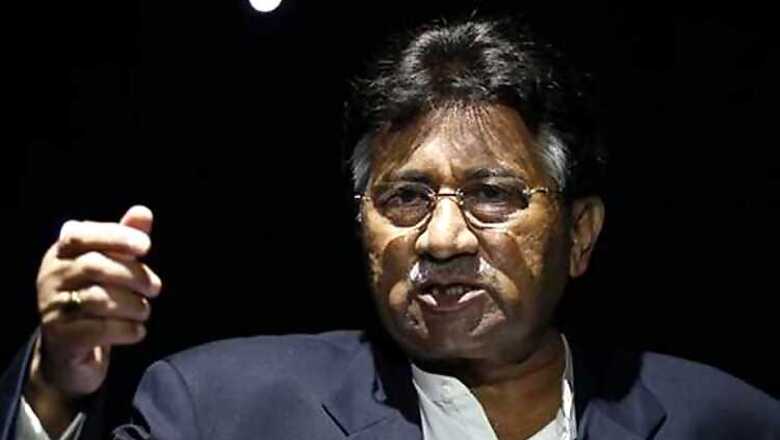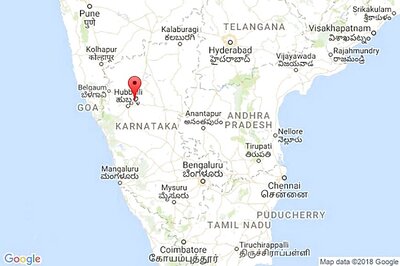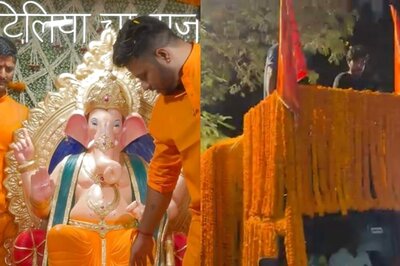
views
Karachi: Pakistan's former dictator General Pervez Musharraf was on Monday acquitted by an anti-terrorism court in the 2006 murder case of Baloch nationalist leader Nawab Akbar Khan Bugti, the first major relief to the ex-military ruler entangled in several high-profile cases.
Bugti led a tribal campaign to win political autonomy for resource-rich Balochistan, Pakistan's biggest province. He was killed in a military operation on the orders of then president and army chief Musharraf in the restive province in 2006.
Musharraf ordered the military crackdown in Balochistan in late 2005 after being targeted by a rocket attack while visiting the southwestern province. 72-year-old Musharraf, who also faces treason charges, was charged with the murder in January last year on the grounds he ordered Bugti's killing.
The court in Balochistan's provincial capital Quetta acquitted former president Musharraf, ex-provincial home minister Mir Shoaib Nosherwani and Qaumi Watan Party chief and member of National Assembly Aftab Ahmad Khan Sherpao.
After the announcement of the decision by Judge Jan Muhammad Gohar, the lawyer representing Bugti's eldest son Jamil Bugti, Sohail Rajput, announced his decision to challenge the judgment of the court, the Dawn reported.
"They should have been convicted and I do not understand why the court set them free," Rajput said. "We are not satisfied with this judgement and we will challenge it," Rajput told reporters outside court.
The court also rejected the request by Jamil to order exhumation of the body of his father to confirm that the body buried in Dera Bugti was that of Akbar Bugti. In a separate application, Jamil had requested the court to summon the members of a parliamentary committee who had met Akbar Bugti following the violence in Dera Bugti in March 2005 in which dozens were killed.
Jamil had named Musharraf, former Prime Minister Shaukat Aziz, former Governor of Balochistan Owais Ahmed Ghani, ex-interior minister Sherpao and others for the murder. Bugti's killing sparked nationwide protests and further fuelled an armed insurgency that began in 2004 in Balochistan.




















Comments
0 comment